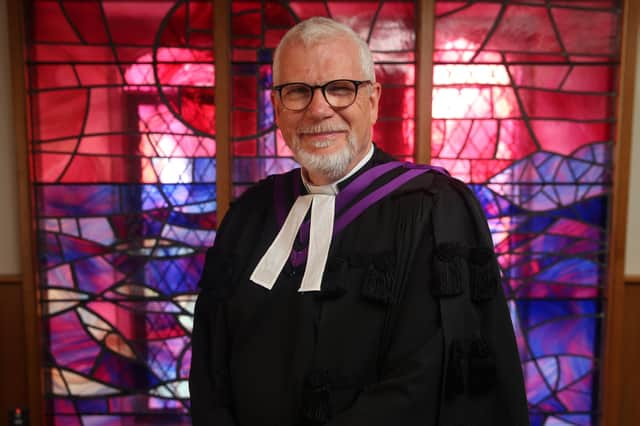Presbyterian Moderator: Integrated education law will inevitably elevate that school sector above others


Having originally formed schools in our quest for social justice with the goal of making education accessible for boys and girls, it remains our passionate desire to this day for children and young people to flourish together.
The focus of much current public discussion in education is the Integrated Education Bill, to be considered again by MLAs tomorrow. Unfortunately, the debate has been characterised by soundbites and stereotypes rather than substance and proper engagement.
Advertisement
Hide AdAdvertisement
Hide AdThe integrating of education is to be welcomed and encouraged, but it should not be identified solely with one particular sector. It is disappointing that the many proponents of this legislation have failed to publicly recognise that integration and mixing of pupils from different backgrounds occurs across all education sectors. Recent statistics demonstrate that the Controlled Schools’ Sector incorporates more than 30% of pupils who do not necessarily identify as ‘Protestant’.
The development of Shared Education has further enriched the experience of children and young people. These opportunities for pupils are significant and meaningful, and an integral part of the educational experience. The use of words like ‘apartheid’ and ‘exclusionary’ belittle the positive and committed work of many teachers and school leaders in this regard. There has been a lack of generosity displayed towards those who work hard to ensure their pupils, from different backgrounds and experiences, do have opportunities to work and learn together through Shared Education, or even more simply, the make-up of their pupil cohort.
The Bill before the Assembly seeks to significantly change the policy and direction of the Department of Education without adequate consultation with key stakeholders or the necessary Equality Impact Assessment, both of which are required when an Executive minister brings forward legislative proposals. Minus the benefit of these checks and balances, the prospect of this legislation to negatively impact children and young people in other sectors – particularly those who need most support – is very real.
Although suggestions that this legislation would elevate the formal Integrated sector above others have been rejected, it is the only logical outcome since the Bill places a duty on the Education Authority to ‘encourage, facilitate and support integrated education’. How then can the Education Authority (EA), with a board comprised of representatives from all education sectors, be asked to support and facilitate one over and above the others? In the context of finite budgets for capital development and school support, how might the EA meet this statutory duty without diverting resources to the formally integrated sector to the detriment of other schools?
Advertisement
Hide AdAdvertisement
Hide AdAs a Church we recognise the value of children and young people encountering differing views, opinions and cultures during their educational experience. Formally integrated schools have their part to play in this alongside, but not at the expense of, controlled, maintained, Irish medium, voluntary grammars and others. Furthermore, with the Independent Review of Education underway, to push for this change in the law at this stage seems hasty and premature.
No one should be in any doubt that we want our children to learn together and build good relations. Both are critical for the future. Ahead of tomorrow’s debate, I have to ask our MLAs to seriously consider - is this the right way and the right time to bring about such significant change in education?
• Rt Rev Dr David Bruce Moderator of the Presbyterian Church in Ireland
——— ———
A message from the Editor:
Thank you for reading this story on our website. While I have your attention, I also have an important request to make of you.
Advertisement
Hide AdAdvertisement
Hide AdWith the coronavirus lockdowns having had a major impact on many of our advertisers — and consequently the revenue we receive — we are more reliant than ever on you taking out a digital subscription.
Subscribe to newsletter.co.uk and enjoy unlimited access to the best Northern Ireland and UK news and information online and on our app. With a digital subscription, you can read more than 5 articles, see fewer ads, enjoy faster load times, and get access to exclusive newsletters and content.
Visit
now to sign up.
Our journalism costs money and we rely on advertising, print and digital revenues to help to support them. By supporting us, we are able to support you in providing trusted, fact-checked content for this website.
Ben Lowry, Editor